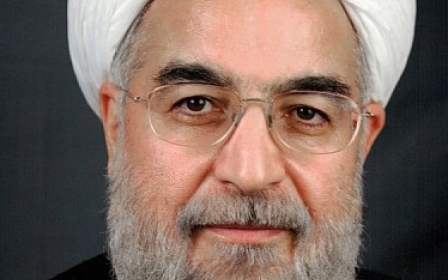UN experts say Iran political prisoners need 'urgent' care

United Nations human rights experts called Thursday on Iran to provide urgent medical care to two political prisoners, warning the seriously ill men risked dying in detention.
The UN's special rapporteur on the rights situation in Iran, Ahmed Shaheed, and other experts voiced alarm at Tehran's alleged denial of medical care for blogger Mohammad Reza Pourshajari and religious cleric Sayed Hossein Kazemeyni Boroujerdi.
"We are gravely concerned about the worsening health condition of Pourshajari and Boroujerdi, who require urgent access to specialist medical treatment outside prison," the experts said in a statement.
"The prison authorities have so far denied this fundamental right, despite prison physicians recommending such urgent care," they added, warning the two men risked "dying in detention".
The statement said Pourshajari, who was arrested in 2010 for his blogging activities under the alias Siamak Mehr, is serving a four-year sentence in Ghezal Hesar prison in Karaj.
Stay informed with MEE's newsletters
Sign up to get the latest alerts, insights and analysis, starting with Turkey Unpacked
He has suffered a heart attack, has prostate disease, kidney stones, high sugar level, breathing problems and high blood pressure, according to the statement.
“Pourshajari and Boroujerdi were imprisoned for peacefully exercising their rights to freedom of expression” wrote the UN. “They should not only receive urgent medical treatment but also be released.”
Boroujerdi, who was arrested in 2006 and is serving an 11-year-sentence, currently at Evin Prison in Tehran, suffers from Parkinson's disease, diabetes, high blood pressure, breathing and walking problems, kidney stones and a heart condition, it said.
Shaheed, along with the UN experts on torture and the right to health, freedom of expression and freedom of religion, warned that the two men's health had deteriorated due to "physical abuse, poor prison conditions, prolonged solitary confinement and other forms of repeated torture and ill-treatment."
In a letter written from jail that was published by Iran Press News on March 27, Pourshajari accused the government of repressing human rights to "keep social and psychological control on the public".
"The people of Iran are now ensnared in the hands of a religious, medieval and extremely backward regime that has no respect for the values the civilized world," he wrote. However, Pourshajari also warned against the "misguided" interventions on human rights by international bodies, saying reform of the current system was needed.
Earlier this week, the Iranian forign ministry summoned the Greek ambassador in Tehran in protest at a human rights resolution passed by the European Parliament on March 31.
The resolution had expressed "grave concern" over human rights, while calling on the Iranian authorities to release all imprisoned human rights defenders, political prisoners, trade unionists and labour activists, and those detained after the 2009 presidential elections.
Middle East Eye delivers independent and unrivalled coverage and analysis of the Middle East, North Africa and beyond. To learn more about republishing this content and the associated fees, please fill out this form. More about MEE can be found here.


